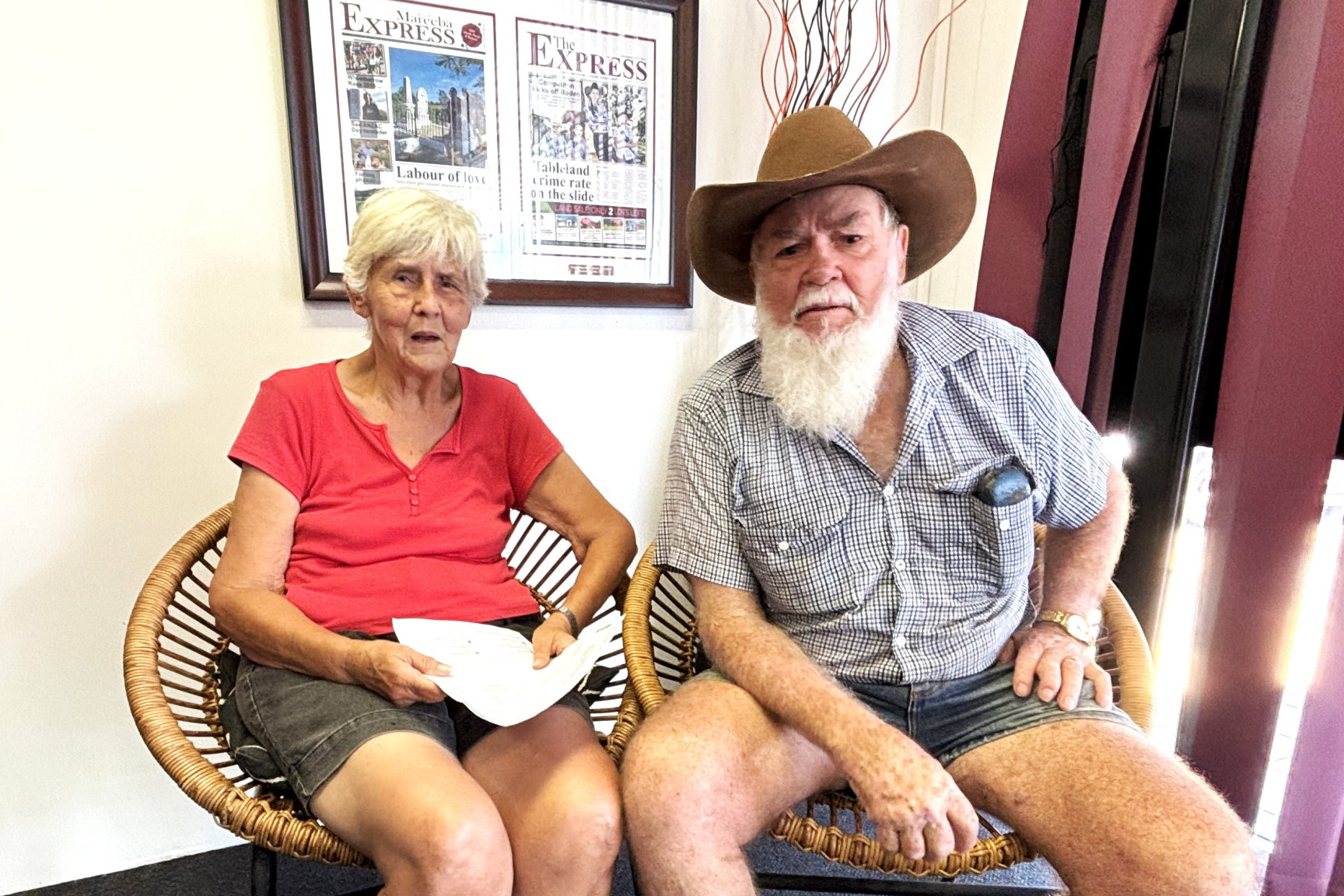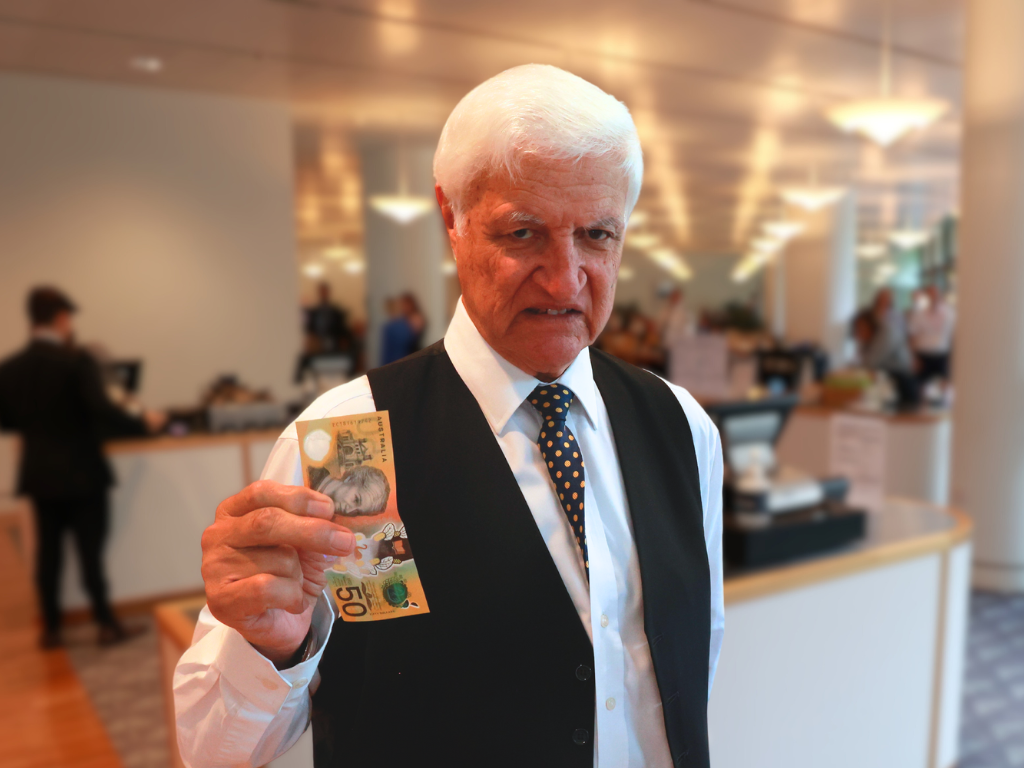Community & Business
25 February, 2025
Fight for survival of cash
AN elderly Mareeba couple has highlighted the issues for people who still want to use cash to pay their bills, saying they were surprised and angry after being turned away twice when they tried to pay a gas bill by cash recently.

Myles and Rose Gostelow said they went to the BOC Gas office to pay their bill on 13 February, but were told cash was not accepted and they should try the post office. However, they were again unable to pay the bill.
“Why is our cash not legal tender?” they told The Express last week.
The couple, now in their 70s, had lived for many years at Koolburra Station before making the move into Mareeba.
They said they had been BOC Gas customers for decades and had always been able to pay their bills by sending a cheque in the mail. Now they were in town they assumed they could simply pay over the counter.

Although cash is legal tender, a business can legally refuse it provided it has another fee-free method of payment and has clearly communicated its cash policy before customers reach the checkout.
The couple said they did not own a computer, and while they had a mobile phone, it was not working properly since the change from 3G network to 4G and they didn’t know how to use it.
The issue is a key priority for Federal Member for Kennedy Bob Katter who has been very vocal in his bid to keep cash as a means of payment.
Last year, he exposed the Federal Parliament House café when they refused his cash payment for lunch, and it worked, with the café reinstating cash payments.
Last week, he made a submission to the government to mandate cash payments to ensure it remained a universally and legally accepted means of payment throughout Australia.
“The most reliable method of payment is cash and we will fight for its survival so we have submitted our argument to the federal treasury demanding protection for cash to be legal tender and accepted without question,” he said.
He said that after consulting with people in his electorate and further afield, the key issues were the vulnerability of some segments of our communities in using technology, limited digital connectivity in regional and remote areas, disaster resilience, economic sovereignty and consumer choice.
“The banks and big businesses are trying to bully us into doing business their way but we will fight them at every turn to make sure they are being fair and providing the services we need, when we need it,” Mr Katter said.
He said digital transactions also opened the door for scams, and banks should reimburse people when they had been “tricked out of their money”.
“We need to force banks to better protect people from scams. The best way to do this is to mandate that the banks reimburse people when they have been tricked out of their money and the banks have allowed these transactions to occur,” Mr Katter said.
“Additionally, during natural disasters, some towns in the Kennedy electorate can be without power for weeks; this can mean limited or no mobile phone coverage, internet services, or EFTPOS, so cash is needed to do basic transactions when food and other goods become available.
“The Federal Government must act decisively to enshrine the right to use cash and mandate its acceptance across the economy.
“We call on the government to take immediate action to protect Australians’ right to choose how they pay and ensure that no one is excluded from the economy due to the imposition of a cashless agenda.”
The government announced in November last year that it would conduct consultation on a national cash mandate which would require businesses to accept cash as payment for groceries, fuel and other essentials.
The move would likely be introduced in 2026 but was also considering exempting small businesses, health care services, basic banking services, and utilities.
The government is also expected to phase out cheques by September 2029.


